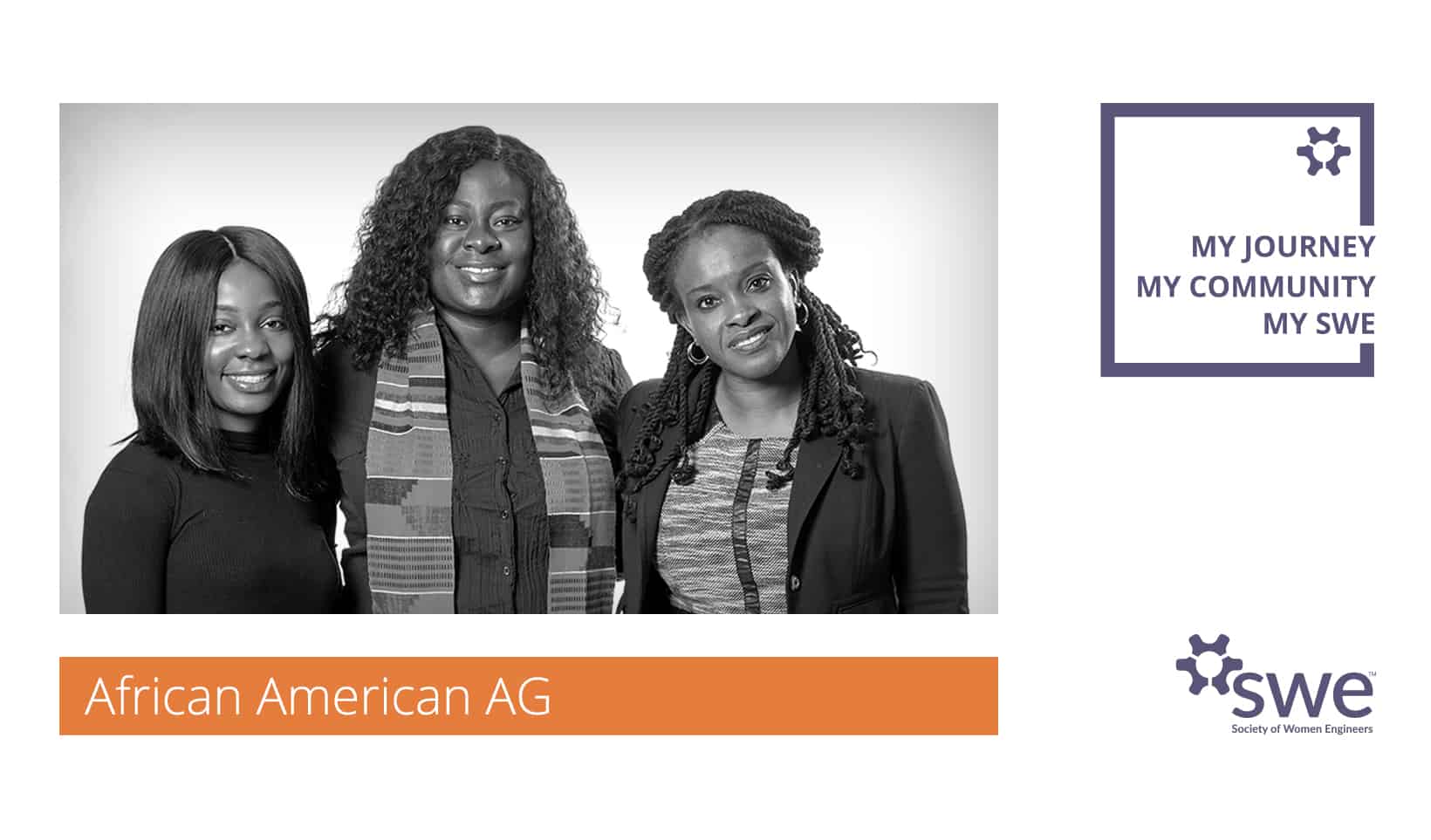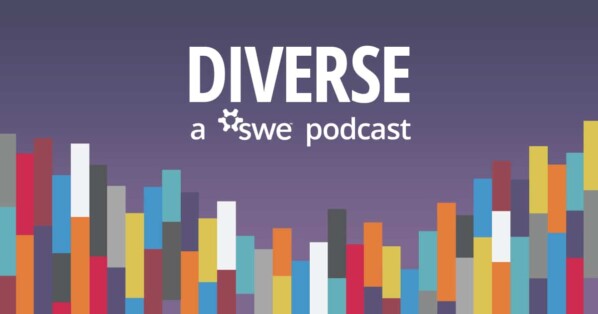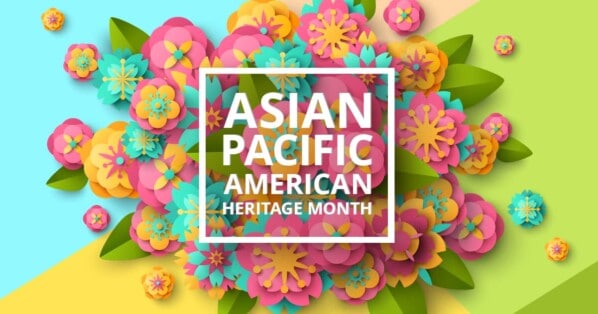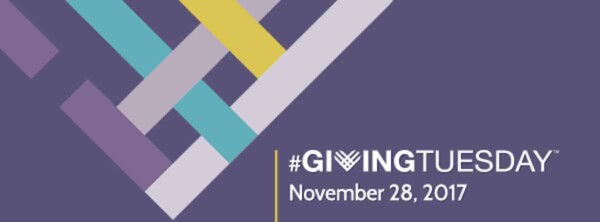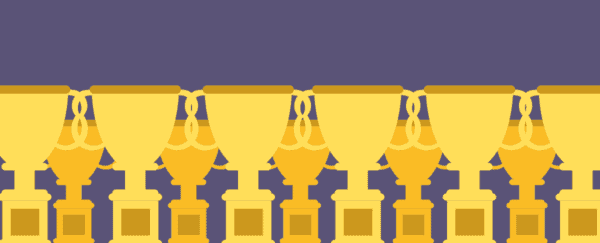In celebration of Black History Month, SWE will be highlighting African American women engineers and entrepreneurs in a series of blog posts.
Meet and learn more about two SWEsters in the African American Affinity Group: Bralade Koroye- Emenanjo (SWE African American Affinity Group Lead and Technical Service & Development Engineer with Dow, Inc) and DaNae’ Winston (Systems Development Engineer at Dell Technologies).
Bralade Koroye- Emenanjo // African American Affinity Group Lead and Technical Service & Development Engineer with Dow, Inc.
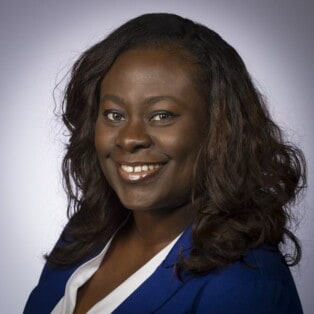
Bralade is a Technical Service & Development Engineer with Dow, Inc and the lead for the SWE African American Affinity Group. She has studied and worked in three continents- Africa, Europe and America with a Bachelor’s & Masters Degree in Chemical Engineering from Nigeria & Northern Ireland. Passionate about all things innovation and inclusion, Bralade is a STEM Volunteer and Employee Resource Group lead. She lives in Houston with her husband and three kids.
Tell us about your background: Where are you from, and what attracted you to the world of engineering or STEM?
I loved mathematics as much as I loved English (writing and reading). It did not help that I idolized my parents who were both college professors in opposite fields- science and humanities. But it came down to what was more challenging and meaty to tackle and that was STEM for me. But my love for the arts helps me see innovation for what it truly is- creativity with science. I consequently studied Chemical Engineering at the University of Port Harcourt, Nigeria and then a graduate degree in process engineering from Queens University Belfast in the United Kingdom.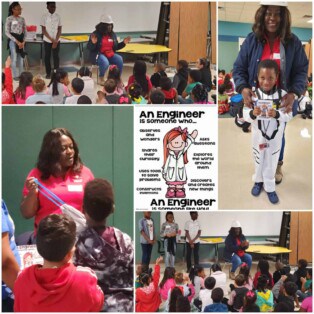
Did you have any mentors or role models who helped shape your educational and/or professional path?
I grew up believing and ultimately knowing I could do anything because of the wealth of intellect I had in my family from my grandfather to my parents who were some of the first graduates in their region. My mother surmounted incredible odds to be a great scholar and was the first western Ijaw woman to earn a Ph.D. My aunt, Professor Engobo Emeseh, University of Bradford, is also currently inspirational and instrumental to me in career and resilience. My sister, Adi Odiachi is also an engineer and it makes us that much closer. These icons are my forever cheerleading squad.
On my inclusion journey, I would say Alveda Williams, Karen Carter, Cynt Marshall and Barbara Whye are incredible women who are moving the needle and making great progress in manufacturing and engineering because of their work as Chief Inclusion Officers, CEOs, Consultants and Directors. You should look these women up.
What has been your personal experience as a double minority (black and female) in a male-dominated industry? What surprises (good and bad) have you encountered?
I am privileged to be in a company that values diversity and inclusion, Dow Inc. But even then, the numbers do not lie and for every group that does not have representation, it makes it that much harder for a woman of color to join and be the “only”. It is hard being your authentic self and your fully productive to an environment where you are the “only”. This is why I do the work I do with the SWE African American Affinity group because it has the opportunity to be a game-changer for women of color in engineering- to advocate, inspire, sponsor and equip companies and women alike with tools for inclusion.
What advice would you offer to girls or young women who are currently in STEM but doubt their capabilities or potential?
- Now you have a seat at the table, what are you going to do with it? Know that you earned it and use your voice.
- Seek allies and make sponsors of them by making the business and heart case. It is a win-win.
- Representation matters- what you do matters and keep paving the way for many more who come after you.
- Read Minda Harts’ “The Memo” and Sheryll Sandberg’s “Lean In”. Those are two must-haves for career women.
DaNae’ Winston // Systems Development Engineer at Dell Technologies
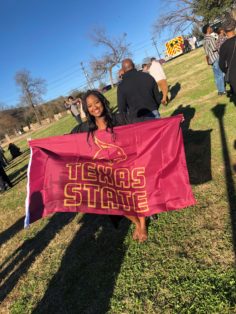
Tell us about your background: Where are you from, Education, Occupation and Tenure. what attracted you to the world of engineering or STEM?
I’m originally from Hitchcock, TX. I graduated from Texas State University in 2018 with a B.S. in Electrical Engineering and a minor in Applied Mathematics. I’m a full-time Systems Development Engineer at Dell Technologies on the Memory Systems Engineering team, focusing on Dell’s Client portfolio.
I gained interest in the world of STEM after my mom took me to a college fair. I met a student that was pursuing an Electrical Engineering degree at Texas A&M. She told me everything she enjoyed about being in her EE program and that inspired me so much! She showed me that the behaviors that isolated me in high school (for example, I was always told that I asked too many questions or thought too far outside the box), would make me stand out in the Engineering world.
Did you have any mentors or role models who helped shape your educational and/or professional path?
My mom is my role model. She’s one of the most impressive and incredible human beings on this earth to me. She never lets me give up on myself or my dreams and supports me every single step of the way. I remember when times got really hard in college… I desperately wanted to quit. She knew that wasn’t what was best for me, nor was it what I truly wanted to do in my heart. Now, here I am, a full-time Engineer. My dad is also my role model. He reminds me of my worth when I can’t see it. He made me realize that many negative experiences could have a positive impact on my life. He taught me to embrace the lessons life teaches me. My brother is another one of my role models. He’s currently traveling all over the U.S. as a registered nurse and doing an amazing job in every city he resides in. His work ethic is so strong and always has been. I aspire to be like him. Lastly, I’m grateful for my partner. He’s my best friend. He picks me up after so many falls and encourages me to keep striving for success.
My family is the foundation that helped me succeed in this industry. Without their love and support, my educational and professional path would not be what it is today. They’re my #1 fans.
What has been your personal experience as a double minority (black and female) in a male-dominated industry?
Being a double minority in a male-dominated industry is really hard at times. However, being a double minority is also what drove me to achieve the goals I’ve achieved thus far. During my time as an upperclassman in college, I was often the only female of color in the classroom and it was really uncomfortable. Seeing the statistics of the number of women in engineering didn’t help either, because the statistics for women of color were/are even lower. It was difficult for me to envision myself as a future African American female Engineer because I didn’t see the representation. Being a full-time engineer now, I value my experiences of being a double minority. I’ve shown that I can operate at a very high level and thrive in the face of adversity.
What advice would you offer to girls or young women who are interested in STEM but doubt their capabilities or potential?
It not uncommon to doubt your capabilities or potential. I doubted myself many times (and I still do sometimes). What you can do to help combat that is grow your network. Make meaningful relationships with people that align with your educational or professional goals. Include people that don’t align as well because you need a diverse network. When you find yourself in this situation, reach out to someone. Your network can help guide you through times like this. Don’t let that feeling deter you from the world of STEM because you belong here.
Also, what I want other double minorities to understand is that being a double minority is a gift- if you allow it to be. When I learned to embrace my differences, I unlocked a substantial amount of confidence in myself. I triggered a mindset that allowed me to spread my wings and soar. I couldn’t have asked for a better gift… it’s a gift that keeps giving.
Who were your allies in your journey and how have they impacted your career?
I call my allies, my village. My village includes my family, friends, my work family, my organizations I’m involved in, my mentors, and even my mentees. I wouldn’t be here without their support and I appreciate them more than words can explain.
Are you are involved in ERGs, professional associations and other D&I forums in the community. Why is that important to you and why should everyone be involved in championing inclusion?
I am currently involved in the Black Networking Alliance (BNA) ERG, BNA Future Leader Program, and the “Changing the Face of Tech” D&I initiative at Dell. Being involved is important to me because I can finally see the representation of women of color in the engineering industry that I didn’t see when I was in college and it’s inspirational. Community involvement, mentoring, and being mentored are things that I’m passionate about and these groups allow me to pursue those passions endlessly.
One of my favorite quotes is, “Diversity is being invited to the party. Inclusion is being asked to dance.” I feel like I’m dancing.
Have you had experienced any challenges or discrimination because of your race or gender? How have you surmounted them?
One of the most memorable experiences for me was after I completed my first internship as a Product Engineering Intern with Samsung Austin Semiconductor. As I explained my incredible experience to my classmates, one asked me if I thought Samsung hired me because I’m actually qualified or because they wanted to increase their diversity numbers. I wish I could tell you that I brushed it off and that I was so confident in my capabilities at the time that I ignored the comment. But in that moment (and many moments after), I wondered if that truly was the reason for that opportunity.
How did I surmount that? I knew what my end goal was, so I didn’t let his doubt or mine deter me from the path I was on because I found joy in engineering. The next summer, I went on to complete another internship with Samsung as a Product Engineering intern by invitation and later, another internship with Dell Technologies before graduating.
Related Content:
- Black History Month: Highlighting African American Engineers
- Black History Month: Highlighting African American Engineers Pt. 2
- Black History Month: Highlighting African American Engineers Pt. 3
- Black History Month: Sojourner Truth on #EachForEqual
- Podcast: Celebrating Black History Month with Past SWE President, Sherita Ceaser

